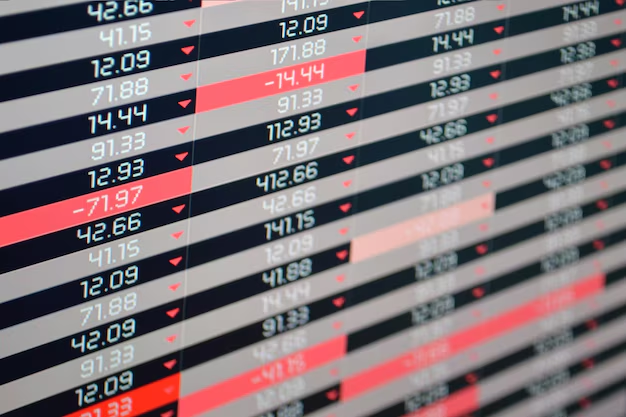Is the Forex Market Open Today? Understanding Forex Trading Hours
Have you ever found yourself wondering, “Is the Forex market open today?” If you're involved in the world of forex trading, you likely know that understanding the market's operating hours is essential for planning your trading strategy. In this guide, we’ll delve into the intricacies of forex market hours, explain how they work, and discuss why these hours are significant for traders.
Understanding Forex Market Hours
The Forex market is one of the most active markets globally, trading over $6 trillion in foreign currencies daily. Unlike other financial markets, the forex market operates 24 hours a day for five and a half days a week. This round-the-clock trading is facilitated by a network of banks, institutions, and individual traders worldwide, collectively known as the interbank market.
How Forex Trading Sessions Work
Understanding forex trading hours begins with recognizing how they are divided into major trading sessions, aligned with major financial centers:
- Sydney Session: Opens at 10 PM and closes at 7 AM GMT.
- Tokyo Session: Opens at 12 AM and closes at 9 AM GMT.
- London Session: Opens at 8 AM and closes at 5 PM GMT.
- New York Session: Opens at 1 PM and closes at 10 PM GMT.
🌍 Time Overlap Opportunities:
The overlap of trading sessions, notably between the London and New York sessions, often leads to higher volatility, making it a prime time for traders seeking to maximize profit opportunities.
Weekend Trading
The forex market is closed from Friday evening to Sunday evening, meaning there’s no trading activity over the weekend. It's important to factor these exclaves into your trading plans. However, some cryptocurrencies, given their digital nature, may continue trading during weekends, occasionally confusing new traders into thinking forex is open.
Key Considerations When Planning Trade
Volatility and Liquidity
- Volatility: Forex market volatility is influenced by economic news, geopolitical events, and the overlap of major trading sessions. Traders often seek periods of high volatility to leverage price movements, but it also raises the risk of sudden market shifts.
- Liquidity: Determined by the number of active participants, liquidity ensures efficient trading with minimal price distortion. Higher liquidity is typical during overlapping trading sessions, particularly between London and New York.
Economic Indicators and Announcements
Keeping an eye on financial news and data releases such as GDP reports, employment statistics, and central bank policies can prepare traders for expected market movements. Economic calendars are tools that provide this data, offering insights on when to expect increased volatility.
Planning Your Forex Trading Strategy
To capitalize on available market conditions, traders often adopt varied strategies based on trading session dynamics.
Trend Following
In trend-following strategies, traders identify sustained price movements within sessions. For instance, if the London session presents strong trends, traders may buy or sell currencies in the direction of those trends.
Range Trading
This strategy is effective during periods of low volatility. Traders box prices within upper and lower bounds and trade within these zones, assuming the boundaries hold.
Breakout Trading
Traders using breakout strategies identify key price levels and prepare to trade the breakout when prices move beyond historical resistance or support. This strategy requires vigilance during session overlap, when breakout potential is highest.
Global Holidays: How They Affect Forex Trading
While the forex market is open 24/5, national holidays can impact sessions. For instance, the U.S. Thanksgiving holiday may decrease market participation, affecting the New York session's liquidity and volatility. Awareness of global holidays aids in preparing for reduced market activity.
Importance of a Reliable Trading Platform
Choosing the right trading platform enhances your ability to take advantage of forex market hours. A good platform should provide accurate time settings, real-time data, and robust analytical tools to assist in crafting and executing trading strategies.
Factors to Consider
- User Interface and Experience: The platform's design should offer intuitive navigation and responsive features.
- Technical Analysis Tools: The presence of charts, indicators, and other tools is crucial for evaluating market conditions.
- Security and Regulation: Ensure platforms are regulated and provide secure environments for trading.
Summary of Forex Market Strategy Tips
Here's a quick your strategy overview:
- ⏰ Know Your Sessions: Understanding major sessions and their overlaps is crucial for planning trades.
- 📈 Monitor News and Economic Indicators: Staying informed on events influencing forex markets helps in anticipating volatility.
- 📊 Choose Your Strategy: Applying trend, range, or breakout strategies tailored to market conditions.
- 🔎 Choose a Reliable Platform: Ensures effective trade execution and insightful analysis.
The Future of Forex Hours
As global economies become interconnected, the forex market's 24-hour operation continues to see potential changes, such as extended trading hours driven by regions with growing financial influence. The adaptability to these changes will be fundamental for traders aiming to remain competitive.
Recognizing forex market hours, the relevance of trading sessions, and tailoring strategies to market environments underpin successful forex trading. Comprehending these factors not just guides day-to-day trading but empowers traders to capitalize on windows of opportunity, enhancing their journey in this dynamic financial landscape.

